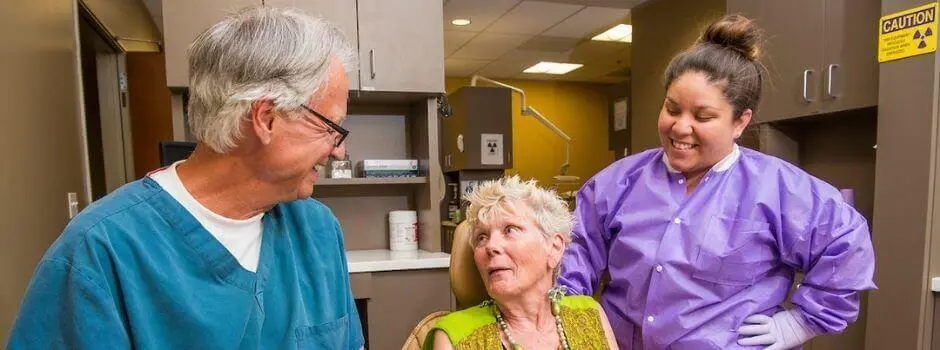As we age, proper oral care is a key part of maintaining overall health and well-being. If ignored, it can lead to other health conditions such as cardiovascular disease, diabetes, osteoporosis, and Alzheimer’s disease.
| This article was medically reviewed by Diane Earle, DDS. |
“Oral health has an impact on systemic health, and if people don’t take care of their mouth, it can lead to serious medical issues,” explains Dr. Diane Earle, vice president of dental care services at InnovAge. Certain medical conditions, such as arthritis and carpal tunnel syndrome, may make brushing or flossing difficult for older adults.
Dr. Earle shares these signs to look for that might indicate the need to make an appointment with your dentist:
- Dry mouth (often a side effect of medications)
- White patches on tongue
- Bad breath
- Bruising on the palate or back of throat
- Loose teeth
- Swelling or bleeding gums
- Jaw pain
- Mouth sores, lumps, and gum pimples
If you see any of these signs, consider making an appointment with your dentist. Regular check-ups are also important.
Routine Dental Care
“Dentistry services are an integral part of the
Program of All-inclusive Care for the Elderly, or PACE,” explains Dr. Earle. “These services can include a wide range of medically necessary treatment to restore function, treat disease, and eliminate pain.”
Routine dental care can help prevent other health complications. Dr. Earle shares these recommendations and tips:
- Floss and brush teeth or dentures at least twice a day
- Switch to a fluoride toothpaste and drink tap water
- Use an antibacterial mouthwash to reduce plaque buildup
- Visit the dentist regularly
“Seeing your dentist twice a year is really important for everyone, regardless of your age,” she says. Regular dental exams and teeth cleanings can detect problems early such as oral cancer, infections around the gum line, cysts, and much more.
“Having that regular check-in allows your dentist and
other specialists to be on your team. They might spot something that you might overlook.”
